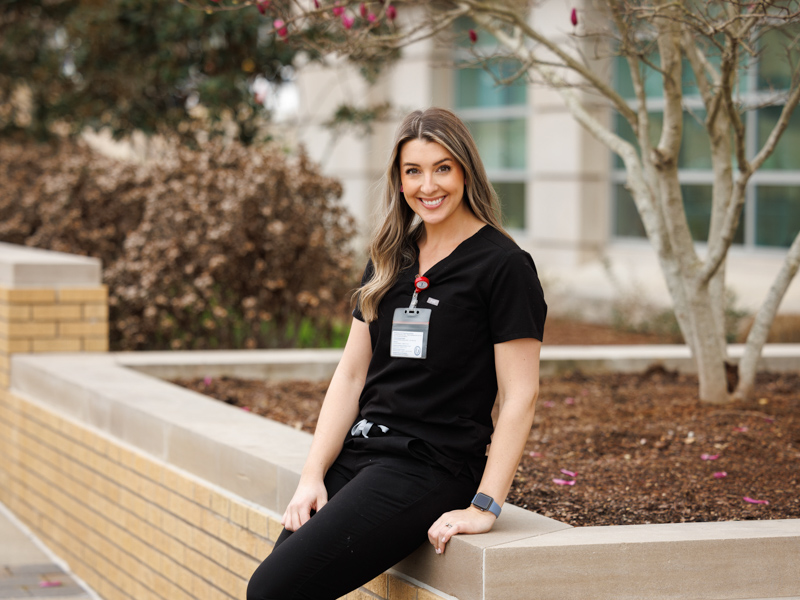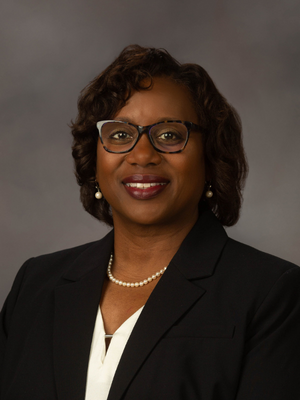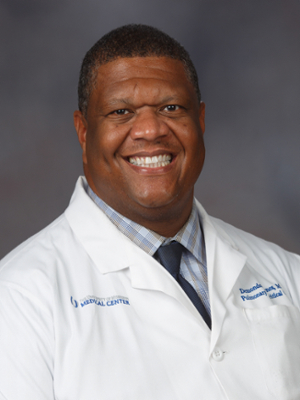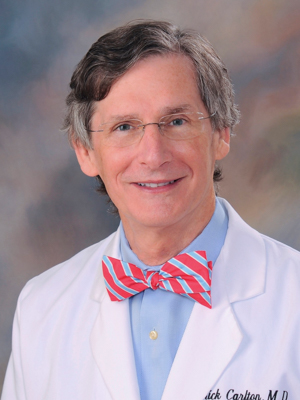‘We know there aren’t enough doctors’: Forum addresses rural shortage

Some 40 minutes after the woman coded, the ambulance arrived in the small, rural town; by then, she had died.
Among the witnesses who heard the sound of the siren approaching the assisted living facility in Fulton was JudiBeth Stephens, working there at the time as a college student who had hopes of becoming a doctor.
And, at that moment, more than ever, she hoped to be a doctor in an out-of-the-way place where people who were dying should still be living.
“People in rural Mississippi fight every day to get the medical care they need,” said Stephens, a fourth-year medical student at the University of Mississippi Medical Center.
To bring more attention to that struggle, and to ways that could bring more of the state’s future doctors to the rural health care fold, the School of Medicine at UMMC is hosting a second statewide rural medicine education symposium, “The Rural Impact,” Friday through Sunday in Jackson.
Open to faculty, residents and students, and convening in The Westin Jackson, the conference will bring to bear the expertise of UMMC physicians and educators, along with small-town doctors who face big-time gaps in resources every day.
The event starts on an upbeat note Friday with the presentation of 15, four-year, full-ride scholarships to third- and fourth-year medical students who have promised to open their future practices in the neediest counties and towns of Mississippi.

“The scholarships mean these students could come out of medical school debt-free,” said Dr. Loretta Jackson-Williams, vice dean for medical education, professor of emergency medicine, and one of the forum’s speakers.
Federal funding for the IMPACT the RACE Rural Track Program is paying for the student grants, on top of the eight awarded in 2022. This year, each fourth-year student is eligible for $140,000; for M3s, the amount is $105,000, and they obtain the remaining $35,000 their fourth year.
Among this year’s recipients is Stephens, who was brought up in Mantachie, a town of about 1,100, whose residents were compelled to find specialty care in Tupelo, some 20 minutes away, or even in Memphis, about 125 miles distant.
After graduating from the School of Medicine in May, Stephens will pursue a residency in obstetrics-gynecology before starting her practice in an underserved community close by her loved ones in Mantachie.
“There has never been a doubt in my mind that I want to work near my home,” Stephens said.
“I saw what it meant to not have a higher level of medical care, I saw the disparities in places like my home. We all know there aren’t enough doctors in the areas that need them so much.”
Nor hospitals. In a newly-revised report, the Center for Healthcare Quality and Payment Reform states that 28 (down from 38) of Mississippi’s 74 rural hospitals are in danger of closing; that’s 38 percent. Of these, 19 are at “immediate risk of closing.” Only three other states have more at-risk hospitals. Sixty-five percent of Mississippi’s rural hospitals report losses on patient services.
In a state with some of the country’s poorest health outcomes, the lack of access to health care for many of its residents “is currently a crisis … that is getting worse,” the Mississippi State Medical Association said in a January 3 statement.
The overall goal of this weekend’s gathering is to, more or less, help wage an offensive against this crisis. Presentations include “The Life of a Rural Physician,” “The Business of Rural Medicine Education,” and “Preparation for Life-long Learning in Rural Medicine.”

The short-term aim is to “bring more attention to the issues and benefits of a rural practice,” said Dr. Demondes Haynes, professor of medicine and associate dean for medical school admissions at UMMC.
“Long-term, we want to see more physicians practicing rural medicine.”
But that doesn’t mean sidestepping frank talk, said Jackson-Williams, whose address is titled “Rural Medicine Education through the Lens of UMMC.”
“I don’t believe anything will change by glossing over things. This is the beginning of a conversation. Letting people tell their story.
“We have to be aware that rural medicine is here to stay in the state and the question is: How are we going to help it thrive and grow? Because we all want the best care for patients.”

Part of the challenge is persuading medical students that the rewards of a small-town medical practice are underestimated and overlooked, said Dr. Frederick “Rick” Carlton Jr., UMMC professor emeritus of emergency medicine and currently the emergency medicine residency program director and chair at Magnolia Regional Health Center in Corinth.
“This requires changing the perception of what it’s like to practice in places like Corinth,” said Carlton, whose hospital serves four or five Mississippi counties and about three counties in southern Tennessee.
“I promise that you will use all of the skills you acquire in medical school and residency.
“lt used to be common that you went to medical school, did your residency, and would then go back to a small town and practice. But not so much now.
“One reason, I believe, is the big gap between the amenities and resources you have in a small community vs. a big town; because of this gap, students who go to medical school, historically do their residency in bigger cities, and get acculturated to that big-city environment. And they don’t want to go back to a small town.
“In Jackson, for instance, or on the Gulf Coast, you have a much wider selection of restaurants or you have a symphony, or theater, if that’s your thing. You have a much bigger circle of friends, and school choices.
“A lot of different things pull the students to eventually practice in a larger town.”
The pull of more cutting-edge technology is among those things. That includes equipment for training staff and students, Carlton said, such as a medical simulation program that features, for example, the use of high-tech mannequins as “patients” to safely practice on.
“I’m a fervent believer in the University,” Carlton said. “It’s integral to health care in Mississippi. UMMC’s expertise, I believe, in things such as simulation training could be shared with hospitals in other parts of the state.”
UMMC and School of Medicine have been striving for years to recruit more students to the cause of rural patient care. Rural medicine is broached in the curriculum; the students’ family medicine rotation is in a rural area. There are outreach programs for high school students underrepresented in medicine, including those with small-town backgrounds.
And there’s the Mississippi Rural Physicians Scholarship Program, approved by state lawmakers in 2007; it has bestowed millions of dollars on students who agree to “return to their roots” as doctors.
One of those scholars is Stephens, who now has the IMPACT the Race grant under her belt as well – a double commitment, if you will, to care for people who might otherwise have to travel miles to see the doctor they need.
“I have a strong heart for this, because I’ve seen it with my own eyes,” Stephens said. “I’ve seen how much the sweet rural patients really cherish their physicians.
“They always come back to you, because you’re what’s there.”
To register for the UMMC Rural Medicine Education Symposium, “The Rural Impact,” go here.
Impact the Race Scholarship Winners
Conner Ball, M4
Henry Bloomingburg, M4
Cailey Crawford, M4
Taylor Cupit, M3
Logan Sears Havard, M3
Keauna Hilton, M3
Jenna Hull, M3
Emberly “Katelyn” Jackson, M3
Kierra Jones, M4
Muriel Mikayla Pracht, M4
Emilee Ann Roberson, M4
Erica Rubio, M3
JudiBeth Stephens, M4
Robert Tatum, M4
Jana Marie Taylor, M3


